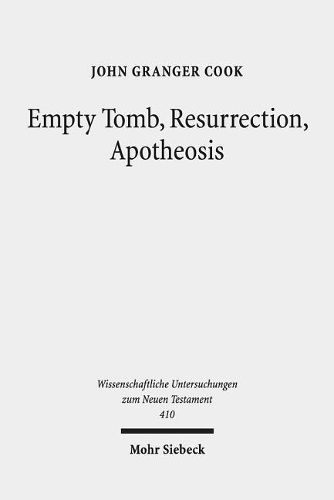Readings Newsletter
Become a Readings Member to make your shopping experience even easier.
Sign in or sign up for free!
You’re not far away from qualifying for FREE standard shipping within Australia
You’ve qualified for FREE standard shipping within Australia
The cart is loading…






Ancient and modern scholars have written many thousands of pages on resurrection in the New Testament. Fewer have examined the theme in both pagan and Jewish texts, however, and the topic remains inherently fascinating. John Granger Cook argues for two primary hypotheses: First, there is no fundamental difference between Paul’s conception of the resurrection body and that of the Gospels; and second, the resurrection and translation stories of Greco-Roman antiquity probably help explain the willingness of Mediterranean people to gradually accept the Gospel of a crucified and risen savior. The use of
(egeiro, wake/rise) and
(anistemi, rise) and the bodily nature of resurrection in ancient Judaism and paganism warrant the first hypothesis. The second hypothesis is more speculative, but the Christian apologists’ comparisons of pagan narratives with those of the New Testament renders it feasible.
$9.00 standard shipping within Australia
FREE standard shipping within Australia for orders over $100.00
Express & International shipping calculated at checkout
Ancient and modern scholars have written many thousands of pages on resurrection in the New Testament. Fewer have examined the theme in both pagan and Jewish texts, however, and the topic remains inherently fascinating. John Granger Cook argues for two primary hypotheses: First, there is no fundamental difference between Paul’s conception of the resurrection body and that of the Gospels; and second, the resurrection and translation stories of Greco-Roman antiquity probably help explain the willingness of Mediterranean people to gradually accept the Gospel of a crucified and risen savior. The use of
(egeiro, wake/rise) and
(anistemi, rise) and the bodily nature of resurrection in ancient Judaism and paganism warrant the first hypothesis. The second hypothesis is more speculative, but the Christian apologists’ comparisons of pagan narratives with those of the New Testament renders it feasible.